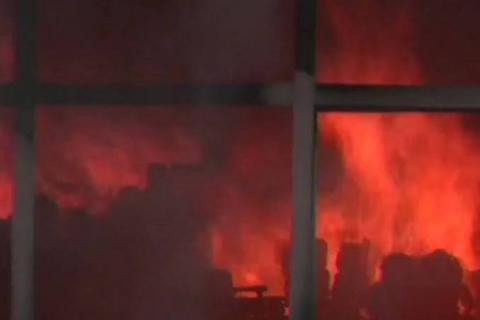Yemen Risk Overview: Outlook for December 2020


The Yemen Risk Overview is a risk identification report published every six months which outlines the main emerging risks in Yemen that might affect the humanitarian situation over the next six months. It aims to inform the humanitarian community of possible changes in context and humanitarian needs in Yemen, in order to facilitate preparedness, risk management, and response. ACAPS regularly tracks the identified risks and monitors previously identified risks that remain a concern (the ‘watch list’), and publishes monthly updates and one-off alerts as contexts change.
Risk 1
Depletion of foreign currency reserves drives inflation up; eroded purchasing power and high food prices result in increased levels of food insecurity.
High inflation, fuelled by further depreciation of the Yemeni riyal, significantly reduces purchasing power, pushing many Yemenis further into poverty. All main inflows of foreign currency in Yemen have been hit hard by the conflict, by the global oil price crisis, and by the COVID-19 pandemic. Internal economic warfare, enabled by a divided monetary system, has driven a divergence of exchange rates for the riyal – currently a 45% difference – in areas controlled by the two main parties to the conflict. Food and basic commodity prices continue to increase, in line with the inflation of the riyal and at varying speeds based on the difference in the exchange rate between the north and south.
Risk 2
Reduced capacity to deliver assistance – because of further cuts in humanitarian funding – impacts millions of people in need.
Reduced response capacity, because of more cuts to humanitarian funding, leaves millions of people without access to humanitarian assistance for food, healthcare, protection, and other needs. As at the end of December, the UN has received USD 1.69 billion for Yemen – only half of the USD 3.4 billion it required for aid operations in Yemen in 2020. A second global wave of COVID-19 is impacting donor countries’ domestic economies, resulting in a reduction in global humanitarian funding. Another cause of reduced funding is the restricted operating environment in Yemen which makes it difficult to ensure delivery of aid in accordance with humanitarian principles.
Risk 3
An attempt by Ansar Allah to enter Marib city intensifies the conflict, leading to mass displacement, civilian casualties, disruption to livelihoods, and lack of humanitarian access.
Mass displacement, disruption to livelihoods, and restricted humanitarian access occur following an Ansar Allah offensive to control Marib governorate and reach Marib city. A worstcase scenario could see between 75,000–150,000 households displaced towards Marib Al Wadi and into Hadramaut. Since early 2020, conflict around Marib governorate between Ansar Allah and local tribes supported by the Government of Yemen (GoY) and the Saudi-led coalition has been increasing. The fighting intensified in August and September. If fighting continues with no significant advances on either side, humanitarian partners have estimated that 3,500 households in locations close to the frontlines could be displaced.
Risk 4
Sudden decline in public service provision in GoY-held areas leaves millions of people requiring external assistance for their basic needs, while humanitarian access is also reduced.
The capacity of the GoY to provide public services – mostly water, electricity, and fuel, but also the payment of civil servants’ salaries – is affected by political instability, clashes, and reduced support by Saudi Arabia. Should Ansar Allah take over Marib, the GoY’s loss of credibility would likely be exploited by political adversaries. Civil servants’ salaries are likely to remain unpaid for a prolonged period of time, which – compounded with a decreasing purchasing power – results in people being unable to buy food, fuel, and other commodities.

Paris — The French humanitarian organization Acted announced that it has delivered cash assistance to nearly 89,000 people affected by displa…

Sana’a — Fuel and food imports into ports under the control of Yemen’s Houthi movement on the Red Sea have continued to fall for…

ADEN — Yemen Airways, the country’s national carrier, announced it will resume flights between Aden and Abu Dhabi beginning in January…